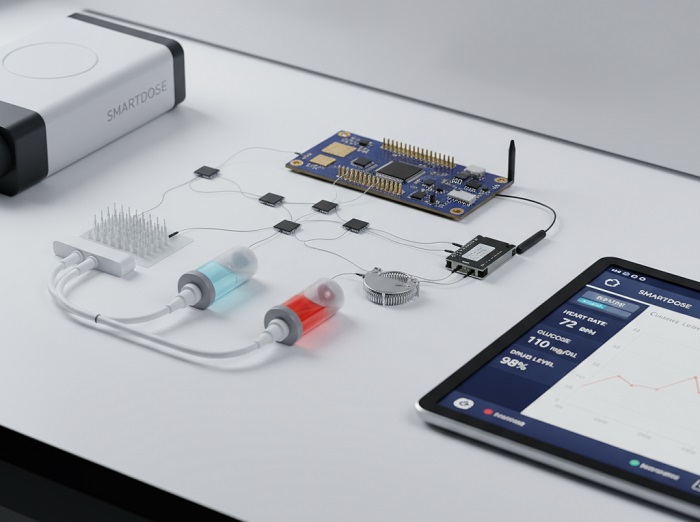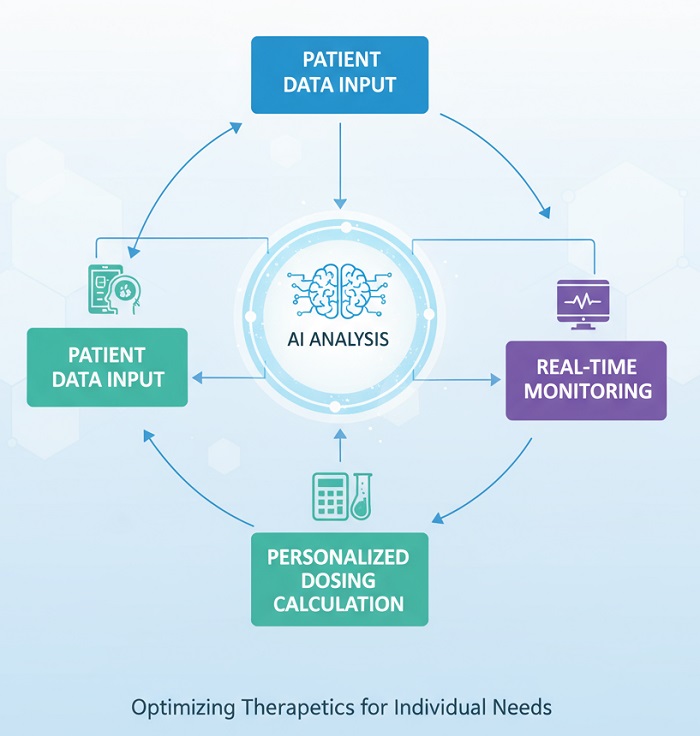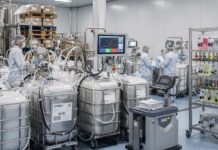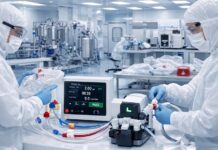Smart Drug Delivery Systems Transforming Patient-Centered Care
The healthcare industry stands at the precipice of revolutionary change as smart drug delivery systems emerge as transformative solutions for patient-centered care delivery. These sophisticated technological platforms integrate advanced materials, microelectronics, and responsive mechanisms to deliver medications with unprecedented precision, targeting, and adaptability. The evolution from traditional drug administration methods to intelligent delivery systems represents a fundamental shift toward personalized healthcare that prioritizes patient needs, comfort, and therapeutic outcomes.
Smart drug delivery systems encompass diverse technological approaches designed to optimize therapeutic effectiveness while minimizing adverse effects. These platforms incorporate biosensors, artificial intelligence algorithms, and wireless connectivity to create adaptive therapeutic environments that respond dynamically to patient physiological changes. The integration of real-time monitoring capabilities enables healthcare providers to track treatment progress, adjust dosing regimens, and intervene proactively when therapeutic modifications become necessary.
Technological Foundations of Intelligent Drug Delivery

Contemporary smart drug delivery systems leverage sophisticated sensor technologies to monitor critical physiological parameters continuously. Glucose sensors integrated within insulin delivery platforms exemplify this approach, automatically adjusting medication release based on real-time blood sugar measurements. These systems demonstrate remarkable precision in maintaining optimal glycemic control while reducing the burden of manual monitoring and injection procedures for diabetic patients.
Microelectromechanical systems (MEMS) technology enables miniaturization of complex drug delivery mechanisms into wearable and implantable devices. These microscale systems incorporate pumps, valves, and reservoirs within compact form factors suitable for extended patient wear. Advanced manufacturing techniques allow precise control over drug release rates, enabling temporal programming of therapeutic delivery patterns that align with circadian rhythms and disease progression cycles.
Nanotechnology applications in smart drug delivery systems create opportunities for targeted cellular delivery and controlled release mechanisms. Nanoparticles can be engineered with stimuli-responsive properties that trigger drug release in response to specific physiological conditions such as pH changes, temperature variations, or enzymatic activity. These responsive systems provide unprecedented targeting capabilities while minimizing systemic exposure and associated side effects.
Patient-Centered Design Principles and User Experience
The development of patient-centered drug delivery systems prioritizes usability, comfort, and lifestyle integration to enhance treatment adherence and therapeutic outcomes. Ergonomic design considerations ensure devices accommodate diverse patient populations, including elderly individuals with limited dexterity and pediatric patients requiring age-appropriate interfaces. User-centered design methodologies incorporate patient feedback throughout development processes, resulting in solutions that address real-world challenges and preferences.
Wearable injectors represent significant advances in patient-friendly drug delivery technology. These devices enable hands-free medication administration while allowing patients to maintain normal activities during treatment periods. Hidden needle designs reduce anxiety and improve patient acceptance, particularly for individuals with needle phobia or injection site sensitivity. Discreet form factors enable inconspicuous wear under clothing, preserving patient privacy and dignity during treatment.
Digital connectivity features enhance patient engagement through mobile applications that provide medication reminders, dosing schedules, and educational resources. These platforms enable patients to track symptoms, medication adherence, and treatment outcomes, fostering active participation in healthcare management. Healthcare providers gain valuable insights into patient behavior patterns and treatment responses, enabling data-driven clinical decision-making and personalized care optimization.
Precision Dosing and Individualized Therapy
Precision dosing represents a cornerstone of smart drug delivery systems, enabling individualized therapy optimization based on patient-specific characteristics and real-time physiological data. Model-informed precision dosing (MIPD) utilizes pharmacokinetic and pharmacodynamic models to calculate optimal dosing regimens for individual patients. These computational approaches consider factors including age, weight, genetic polymorphisms, renal function, and concurrent medications to maximize therapeutic efficacy while minimizing adverse effects.

Adaptive dosing algorithms continuously refine treatment parameters based on patient response patterns and biomarker measurements. Machine learning techniques enable systems to learn from patient data and improve dosing accuracy over time. These intelligent systems can detect early signs of therapeutic resistance or adverse reactions, prompting automatic dose adjustments or clinical alerts for healthcare provider intervention.
Biomarker-guided therapy represents an advanced application of precision dosing in smart drug delivery systems. These platforms integrate laboratory testing results, genetic information, and physiological monitoring data to optimize treatment selection and dosing strategies. Real-time biomarker monitoring enables dynamic therapy adjustments that maintain optimal therapeutic windows while avoiding toxicity thresholds.
Advanced Device Technologies and Innovation
Connected autoinjectors represent sophisticated examples of smart drug delivery systems that enhance traditional injection methods with digital capabilities. These devices incorporate sensors to verify proper injection technique, track medication administration timing, and monitor injection site conditions. Bluetooth connectivity enables data transmission to healthcare providers and patient management applications, creating comprehensive medication adherence records.
On-body delivery systems utilize miniaturized pump technologies to enable large-volume subcutaneous infusions over extended periods. These wearable platforms eliminate the need for intravenous access while providing controlled delivery rates that optimize patient comfort and therapeutic outcomes. Gas-powered actuation mechanisms ensure consistent delivery rates regardless of medication viscosity or patient movement patterns.
Smart inhaler technologies revolutionize respiratory medication delivery through integrated sensors and connectivity features. These devices monitor inhalation technique, track medication usage patterns, and provide real-time feedback to optimize drug deposition in target respiratory regions. Environmental sensors detect air quality conditions and pollen levels, enabling predictive interventions for asthma and chronic obstructive pulmonary disease management.
Clinical Applications and Therapeutic Outcomes
Neurological disorder management benefits significantly from smart drug delivery systems that provide consistent therapeutic levels while minimizing fluctuations associated with traditional oral medications. Continuous subcutaneous infusion systems for Parkinson’s disease medications demonstrate superior symptom control compared to intermittent dosing approaches. These systems reduce motor complications and improve quality of life measures for patients with advanced disease stages.
Oncology applications leverage smart drug delivery systems to optimize chemotherapy administration while reducing systemic toxicity. Targeted delivery platforms can concentrate therapeutic agents at tumor sites while minimizing exposure to healthy tissues. Real-time monitoring capabilities enable early detection of adverse reactions and prompt intervention to prevent serious complications.
Chronic pain management utilizes smart delivery systems to provide personalized analgesia that adapts to patient activity levels and pain patterns. These systems incorporate pain assessment algorithms that adjust medication delivery based on physiological indicators and patient-reported outcomes. Breakthrough pain episodes trigger automatic dose adjustments while maintaining safety limits to prevent overdose events.
Integration with Healthcare Systems and Data Management
Electronic health record integration enables seamless incorporation of smart drug delivery system data into comprehensive patient care plans. Automated data capture eliminates manual documentation requirements while providing healthcare providers with objective medication adherence and treatment response information. These integrated systems support clinical decision-making through comprehensive patient data visualization and trend analysis capabilities.
Telehealth platforms leverage smart drug delivery system data to enable remote patient monitoring and virtual care delivery. Healthcare providers can assess patient status, adjust treatment parameters, and provide clinical guidance without requiring in-person visits. This approach improves access to specialized care while reducing healthcare costs and patient travel burdens.
Artificial intelligence applications in smart drug delivery systems enable predictive analytics that identify patients at risk for treatment failures or adverse events. These systems analyze patterns in patient data to generate early warning alerts and treatment optimization recommendations. Machine learning algorithms continuously improve prediction accuracy through exposure to diverse patient populations and treatment scenarios.
Future Directions and Emerging Technologies
Implantable drug delivery systems represent the next generation of smart therapeutic platforms that provide long-term automated medication administration. These devices incorporate biodegradable drug reservoirs and programmable release mechanisms that eliminate the need for repeated dosing procedures. Wireless programming capabilities enable healthcare providers to adjust treatment parameters remotely without requiring device replacement.
Gene therapy delivery systems utilize smart platforms to optimize cellular targeting and expression control. These systems can modulate gene expression levels based on physiological feedback signals, creating adaptive therapeutic responses that maintain optimal protein production levels. CRISPR-Cas9 delivery platforms incorporate smart targeting mechanisms that enhance precision while reducing off-target effects.
Combination therapy delivery systems enable simultaneous administration of multiple therapeutic agents with synchronized release profiles. These platforms can adjust individual drug release rates based on patient response patterns and drug interaction considerations. Advanced formulation technologies enable incompatible drugs to be delivered simultaneously through separate channels while maintaining therapeutic effectiveness.
The convergence of biotechnology, artificial intelligence, and materials science continues driving innovation in smart drug delivery systems. Emerging technologies including biodegradable electronics, cellular reprogramming platforms, and quantum sensing devices promise to further enhance therapeutic precision and patient outcomes. As these technologies mature and regulatory frameworks evolve, smart drug delivery systems will become integral components of personalized healthcare delivery, transforming how medications are prescribed, administered, and monitored across diverse patient populations and therapeutic applications.























